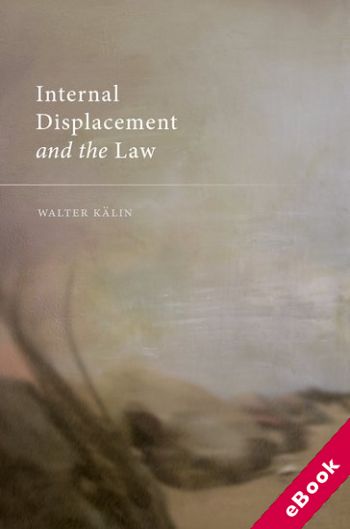
The device(s) you use to access the eBook content must be authorized with an Adobe ID before you download the product otherwise it will fail to register correctly.
For further information see https://www.wildy.com/ebook-formats
Once the order is confirmed an automated e-mail will be sent to you to allow you to download the eBook.
All eBooks are supplied firm sale and cannot be returned. If you believe there is a fault with your eBook then contact us on ebooks@wildy.com and we will help in resolving the issue. This does not affect your statutory rights.
The world faces more than 60 million people displaced by armed conflict and disasters as of 2022. Climate change is set to trigger large-scale displacement in the future. Internal Displacement and the Law discusses to what extent the present law can contribute to preventing, responding to, and resolving internal displacement and protecting the rights of these internally displaced persons (IDPs). It also identifies its weaknesses and examines ways to improve action.
The book's analysis reflects the realities of internal displacement and the challenges faced by displaced individuals and communities, their hosts, governments, and international actors. Assessing the UN Guiding Principles on Internal Displacement and the Kampala Convention on the Protection and Assistance of Internally Displaced Persons in Africa, this enlightening volume investigates the relevance of international human rights and humanitarian law to the problem of displacement with an eye toward durable solutions.
In line with its human rights approach, this work promotes a narrative that, based on the concept of sovereignty as responsibility, emphasizes the primary responsibility of states to address the needs of IDPs and views them as citizens with rights and agency rather than as vulnerable beneficiaries of humanitarian action. The author concludes that the body of relevant law amounts to an emerging legal regime on internal displacement whose substantive norms are largely adequate, but which faces specific institutional challenges at domestic and international levels that weaken efforts to address the plight of IDPs.